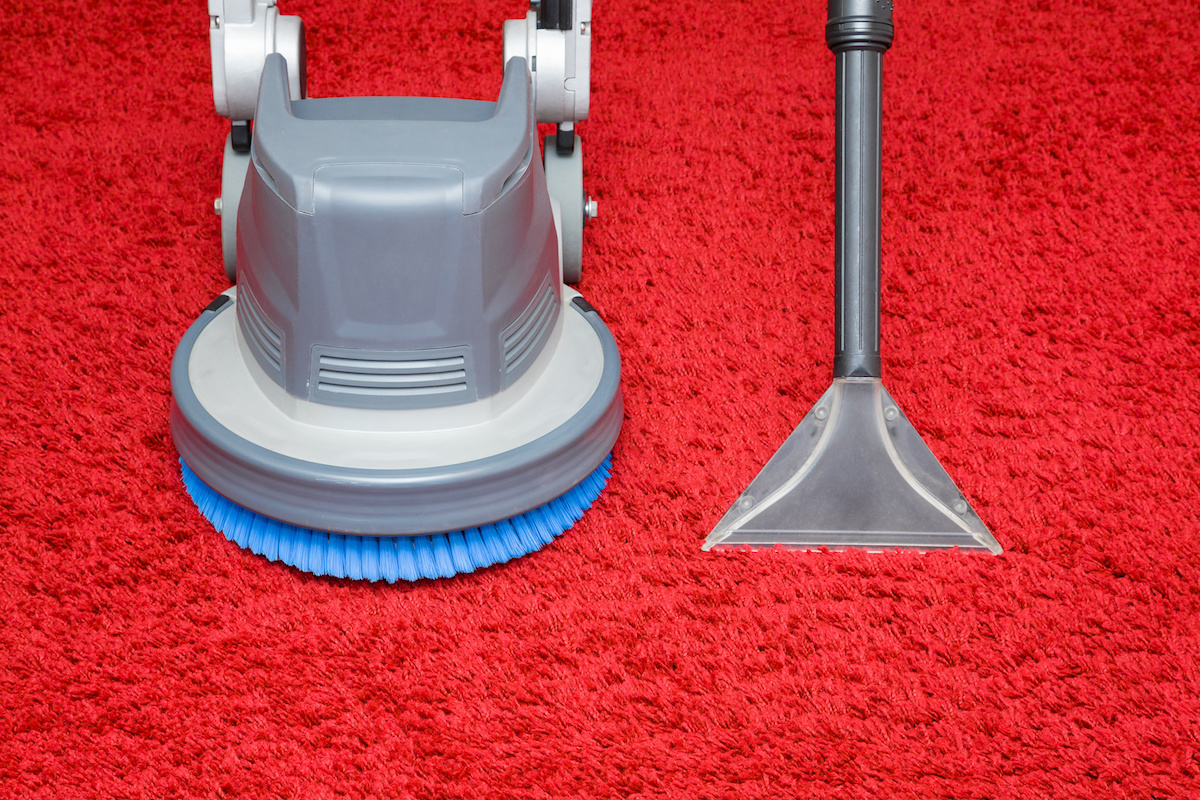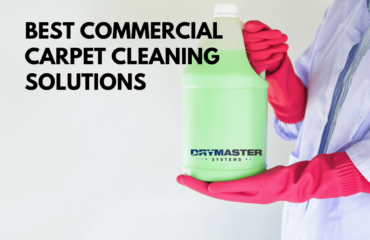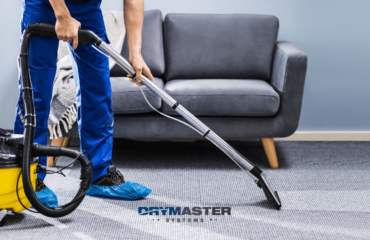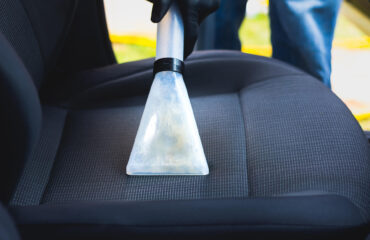Running your own carpet cleaning business means using the right equipment for the job. As part of your business, you and your team might clean residential and commercial carpets, each made of different materials and requiring various carpet brushes.
To ensure you use the right carpet cleaning brush, familiarize yourself with different types of brushes for carpet cleaning and learn why using high-quality equipment and brushes is vital to your business.
What Type of Brush Should I Use to Clean Carpet?
When choosing a brush for carpet cleaning, you must consider carpet cleaning brush features. The following elements, including the brush composition, wear indications, wet strength, lifespan, and color-coding ability, offer varying degrees of operability for your brush and equipment.
- Brush composition. The material that composes the core of your brushes affects its durability and performance. Use brushes made of polypropylene, a thermoplastic polymer, for most jobs. This material holds up to most solvents and gives your brush the perfect balance of strength and stability.
- Wear indication. Wear indication refers to intentional markers that tell you when to change a brush on your machinery. Often this marker is in the form of bright-colored bristles that, when reached, show that the brush may no longer be effective. Choose brushes with these indicators so you can change the brush to gain maximum efficiency when cleaning carpets.
- Wet strength. If you use wet carpet cleaning methods like shampooing, look for carpet brushes made from high-performance synthetics with stiff bristles that can withstand moisture and solvents and resist microorganism growth. Often, nylon brush bristles bend or melt at specific temperatures; however, polypropylene bristles offer a high-melting point and abrasion resistance when wet.
- Lifespan. The life of the brushes you choose can impact your business’ revenue. Opt for brushes with a high ROI that last hundreds of thousands of square feet, so you don’t need to change them out often. The most durable brushes include those made of polypropylene, nylon, and some heavy-duty rubbers.
- Color-coding. Invest in brushes that allow easy color-coding if you own a larger carpet cleaning business with multiple employees. These features let you and your team identify which type of brushes work for various carpets, so you don’t use the wrong kind on carpet that needs more gentle or vigorous cleaning methods.
Choosing Equipment Based on Carpet Type
When choosing the right brush, consider the carpet type you’ll be cleaning. Different carpet fiber types require varying cleaning methods. The following are general guidelines to keep in mind when selecting brushes or equipment:
- Commercial carpet. Low-cut pile or level loop commercial carpets can withstand heavy-duty carpet cleaning machinery with stiff-bristled brushes. You can use bonnet cleaning, shampooing, or dry carpet cleaning for this type of carpet.
- Natural or delicate fibers. Deep pile carpets (carpets with long, typically unlooped fibers) made of natural fibers like wool, silk, or cotton need regular cleaning with a gentle bristle brush. Don’t use stiff, synthetic brushes or heavy machinery on these carpets.
- Synthetic fibers. To remove stains, carpets made of synthetic fibers like nylon or olefin can withstand stiff-bristled brushes. You can typically use dry shampooing machinery with nylon brushes for this carpet.
- Commercial loop pile. Some commercial carpets have loop piles that require special care. It’s important to check with the carpet manufacturer for the best method of cleaning these carpets to prevent damage.
Types of Carpet Cleaning Brushes
As you begin to understand different features to look for when choosing carpet cleaning brushes, you can narrow down the types of brushes you may need for your business. The following brush types work for different carpets and offer you the opportunity to serve multiple customers in various settings.
Upholstery Brushes
Upholstery brushes are made for delicate upholstery on chairs or couches, car seats, and on some tapestry-like curtains. These brushes are sometimes made with horsehair bristles that gently clean the fabric without causing damage.
Grooming Brush
In some cases, you may want to use a carpet grooming brush for a finishing touch on residential carpets. Grooming brushes don’t clean the carpet, but they help remove loose fibers and machine marks, helping the carpet to dry faster and ensuring it looks beautiful when finished.
Rotating Bristle Brush
If you use a carpet extractor machine to clean heavy-duty commercial areas, the equipment may come with a rotating bristle carpet cleaner. These rotating cylindrical brushes, sometimes made of Tynex, a type of nylon, can move at 2,500 RPMs to remove hard-to-reach dirt and debris in carpet fibers.
Carpet Shampoo Brush
Carpet shampooing is a common method used to clean carpets. You might consider a carpet shampoo brush made of polypropylene to pair with a high-speed shampooing machine to work the solution into the carpet for a deep clean.
Carpet Scrub Brush
If you’re just starting your carpet cleaning business, you might wonder, “can you use a scrub brush on carpet?” While a carpet scrubber brush may be suitable for lower-quality or durable rugs made of olefin or nylon, you should avoid using a handheld brush with a solvent-soaked carpet. Using rug brushes with stiff bristles on wet carpets can break down the fibers and damage the stained area and discoloration.
However, using scrub brushes as part of a dry carpet cleaning method is safe and one of the best ways to maintain the carpet’s pile texture, color, and shape. For example, with dry shampoo equipment from DryMaster, you use a machine with a bristled brush that oscillates at 2,500 RPM to help dry shampoo penetrate the carpet. You use the dry extractor to vacuum up the solvent along with unwanted debris and dirt, leaving the carpet clean and intact.
Learn More About Running Your Carpet Cleaning Business With DryMaster
Choosing the right carpet cleaning brush and equipment can help you run a successful carpet cleaning business. DryMaster Systems offers several resources for those who start their businesses as DryMaster Associates, including access to high-quality brushes and machinery, coaching, and marketing materials.
Learn more about starting a carpet cleaning, duct cleaning, or sanitizing business by visiting DryMaster to receive a free business guide.




